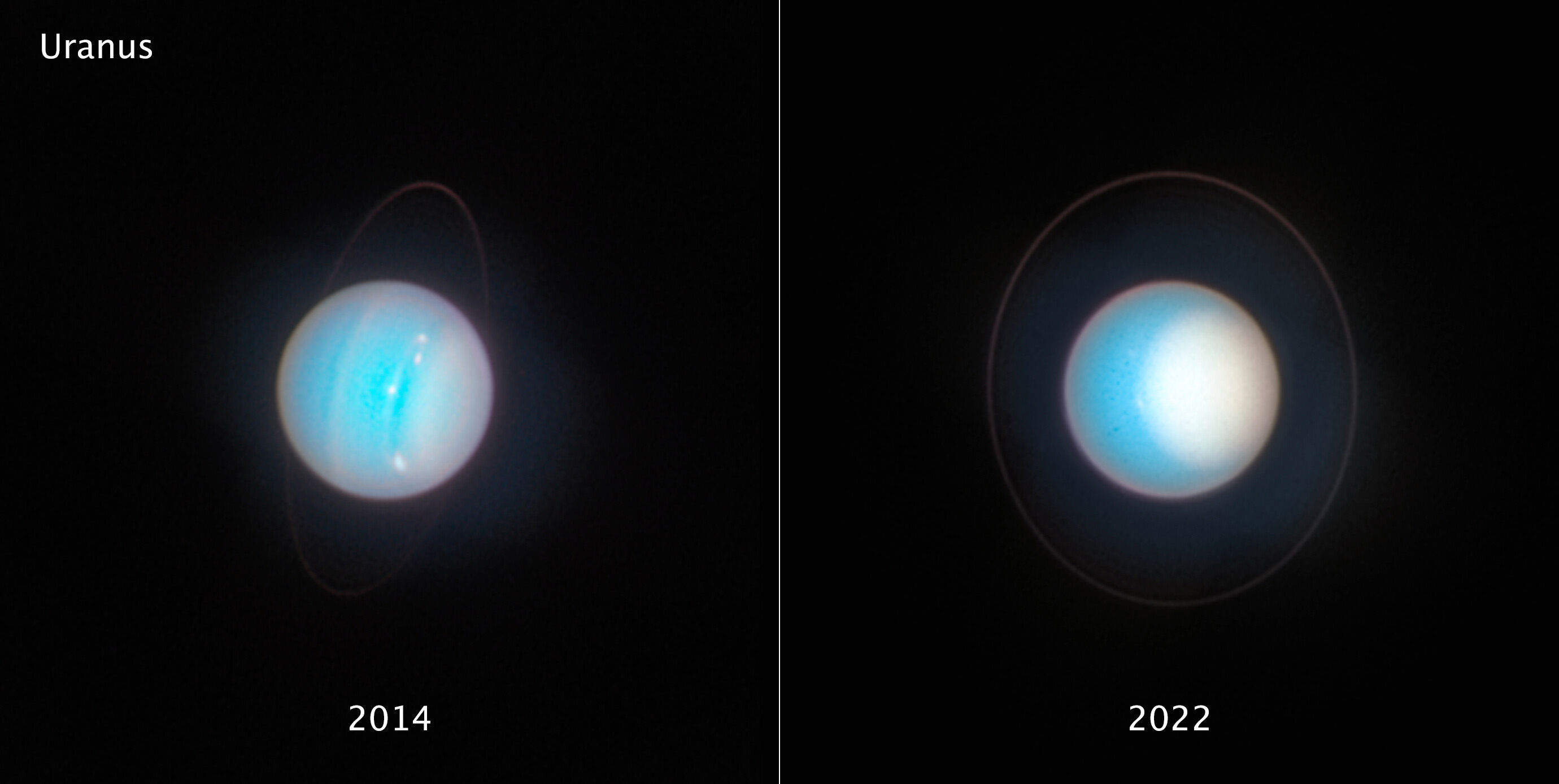Scientists have now confirmed the discovery of infrared auroras on Uranus, and it could help us better understand why the planet is so hot. The researchers confirmed the presence of these special auroras, which only appear in the infrared while looking at data captured nearly 20 years ago.
The data shows the presence of infrared auroras glowing in the northern regions that make up Uranus. The discovery will hopefully help fill in some of the holes and unknowns about the Uranian auroras that we’ve seen in the past.
The hope is that discovering more about these different auroras will help scientists explain the mysteries of Uranus, like why the planet is so hot. The planet, which is the seventh from the Sun, is much hotter than scientific models say it should be. These models predict that the planets like it, including the other gas giants, should be hundreds of degrees Kelvin/Celsius lower than they are.
One of the ongoing theories is that the energetic auroras could be the cause, which could generate and push heat from the aurora down toward the magnetic equator of the planet. The confirmation that these infrared auroras exist on Uranus, too, could help further prove that theory.
These, of course, aren’t the only auroras that Uranus experiences. We have known about ultraviolet auroras on Uranus for several years at this point. But we weren’t so sure about infrared auroras. However, scientists believe they had to be there, and they’ve been looking for evidence of their existence since 1992.

Finding something like this out would have probably taken less time if we had sent more probes to Uranus. However, exploring this gassy planet has been less than fulfilling for many, leaving several agencies struggling to push for Uranus probes and exploration missions.
Perhaps with this new discovery, interest in the gas planet will be renewed even more. Though, with NASA fighting to find alternatives for the Mars Sample Return, I wouldn’t hold your breath for anything concrete in the next couple of years.








